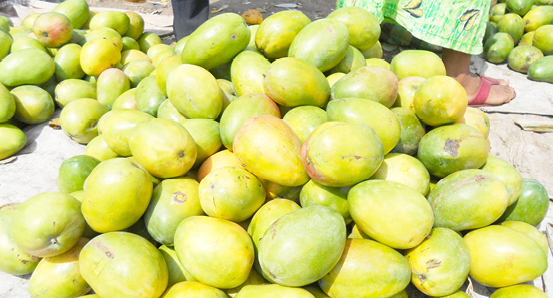It’s the season of mangoes, and the market is flooded with them. But, as the demand for juicy mangoes increases, the marketers artificially inject them with chemicals which ripen them quickly so that the supply remains stable. If you are also a mango lover, then here are some tips for identifying such mangoes that are loaded with chemicals.
Which chemical is used for the ripening process?
Apparently, the mangoes are injected with calcium carbide, which releases acetylene gas when it comes into contact with moisture. This can cause the mangoes to ripen quickly, but it can also lead to serious health risks for people such as skin irritation, respiratory problems, and gastrointestinal issues if ingested. Not just that, but fruit traders also use ‘ethylene treatment’, which involves exposing the fruit to ethylene gas. This gas is a natural plant hormone that triggers the ripening process in fruits.
See the colour
While buying mangoes, do not forget to look at the colour of the mangoes. Whenever a mango is ripe with chemicals, it will have green spots on it and one can identify them.
The size
Apart from this, also see how the shape of the mango is, it will also let you know if the mango is ripened with chemicals. Chemically ripened mangoes are small in size and most of them are seen dripping juice. Apart from this, if you see any mango which has a white or blue mark, then it should not be bought at all. In this way, you will be able to identify chemically ripened mangoes.
- Cut down cost of governance, AfDB President charges Tinubu
- FrieslandCampina unveils Nigeria’s first high yield crossbreeds
The dip test
While buying mangoes, put the mangoes in a bucket of water and see which mangoes are sinking and which are on the surface of water. Mangoes that sink in water are naturally ripe. But if you see any mango floating on top, then understand that it has been cooked with chemicals.
The press test
It is very easy to identify ripe and sweet mangoes. While buying a mango, you should see it by pressing it lightly. The mango is considered ripe when it becomes soft, but if you feel the mango hard at some places when you press the mango, then it may be that the mango is not ripe properly and it is being sold after cooking it with chemicals.
While this one is not a chemical test, but it is one of the easiest methods. All you need to do is, smell the stem of the mango, if it smells fruity and sweet, there’s a good chance it’s ripe. If it smells sour or alcoholic, it’s most likely spoiled.
Check for spots
Naturally ripened mangoes have brown spots, while the ones ripened with chemicals will have pale or white spots. Check for the colour of the spots and you will get to know how mangoes are ripened.
Effects of consuming artificially ripened mangoes
When you consume artificially ripened mangoes, you may feel irritation in your throat along with a burning sensation in your stomach. This can also sometimes lead to stomach ache and diarrhoea.
Why mangoes are enjoyed in summer?
The sweet and juicy taste of mangoes is quite refreshing during hot summer days. This fruit is also a great source of hydration, with high water content which makes it a popular choice for smoothies, juices, and other summer drinks.

 Join Daily Trust WhatsApp Community For Quick Access To News and Happenings Around You.
Join Daily Trust WhatsApp Community For Quick Access To News and Happenings Around You.


